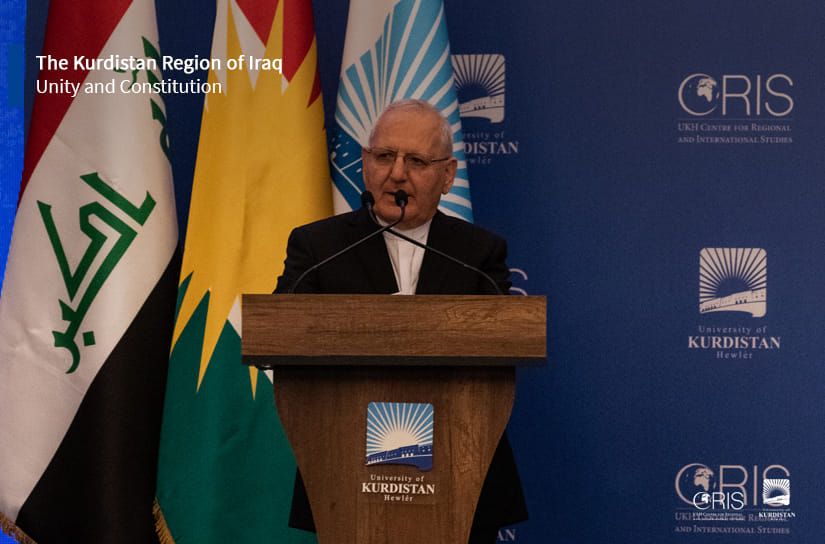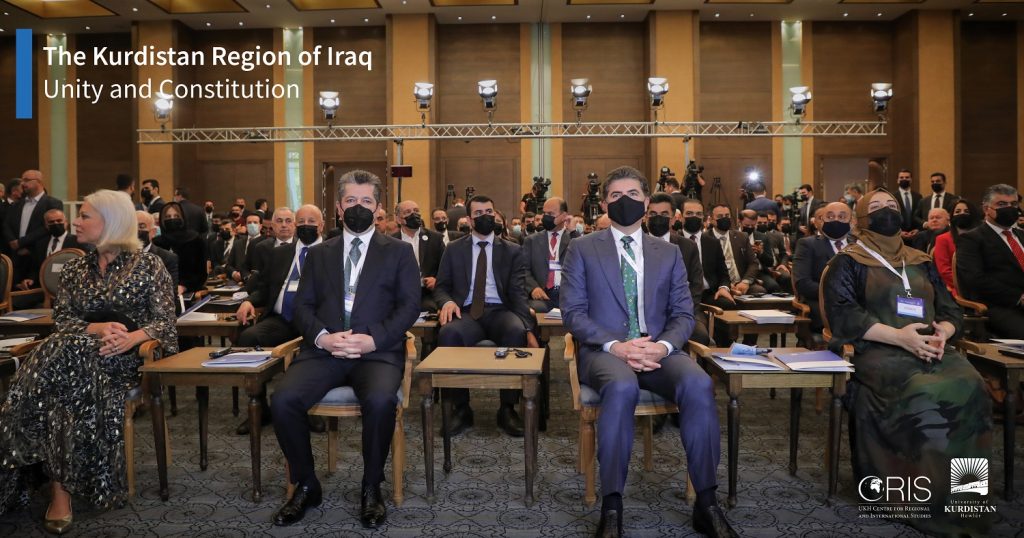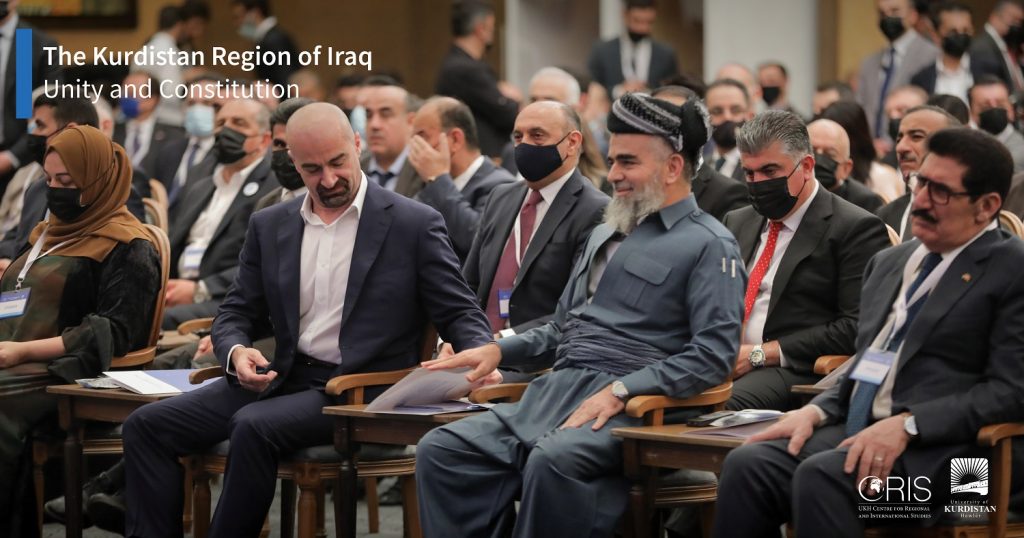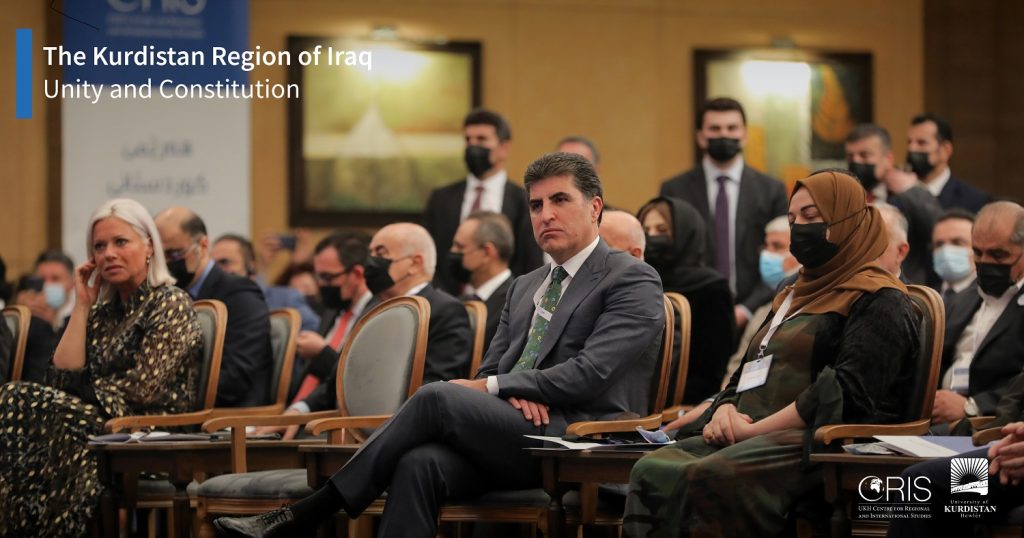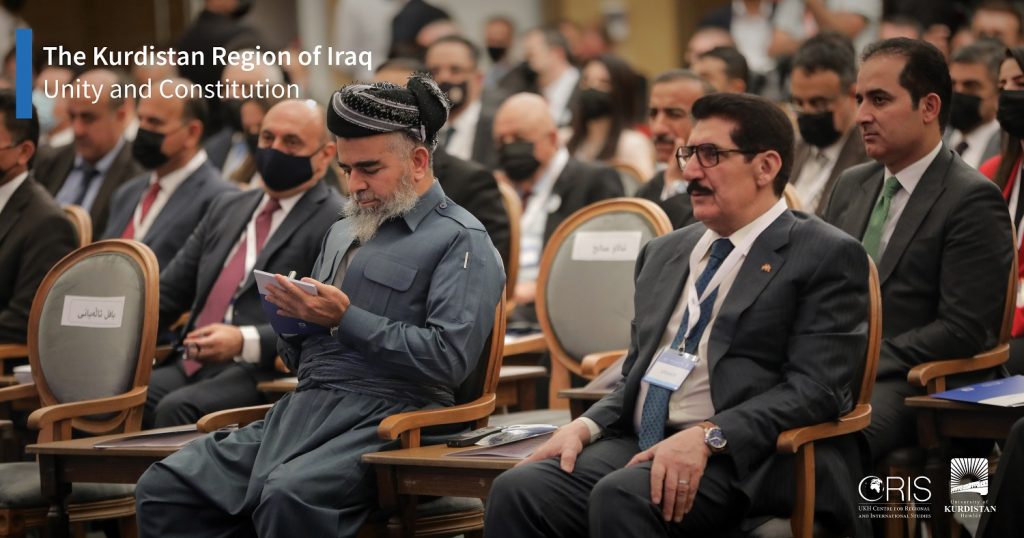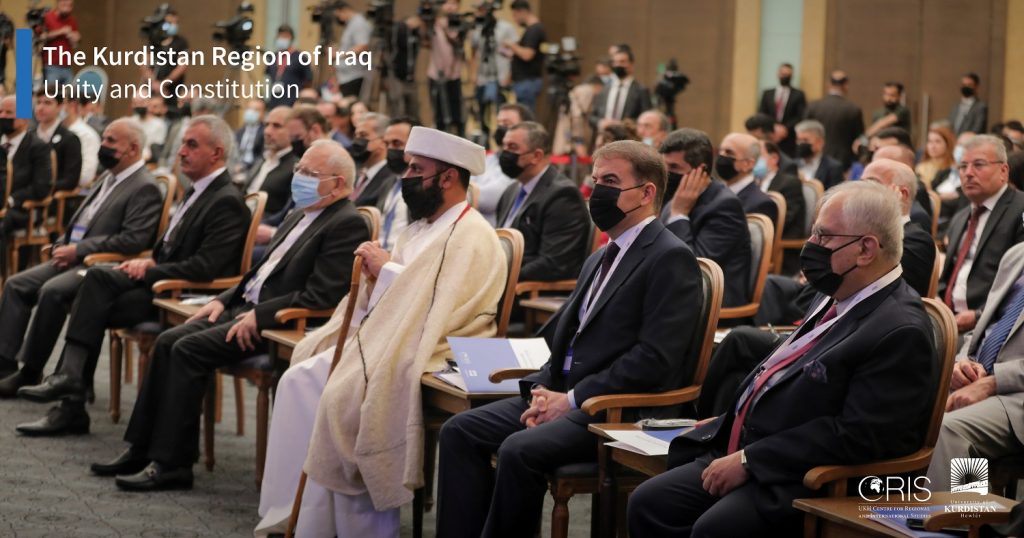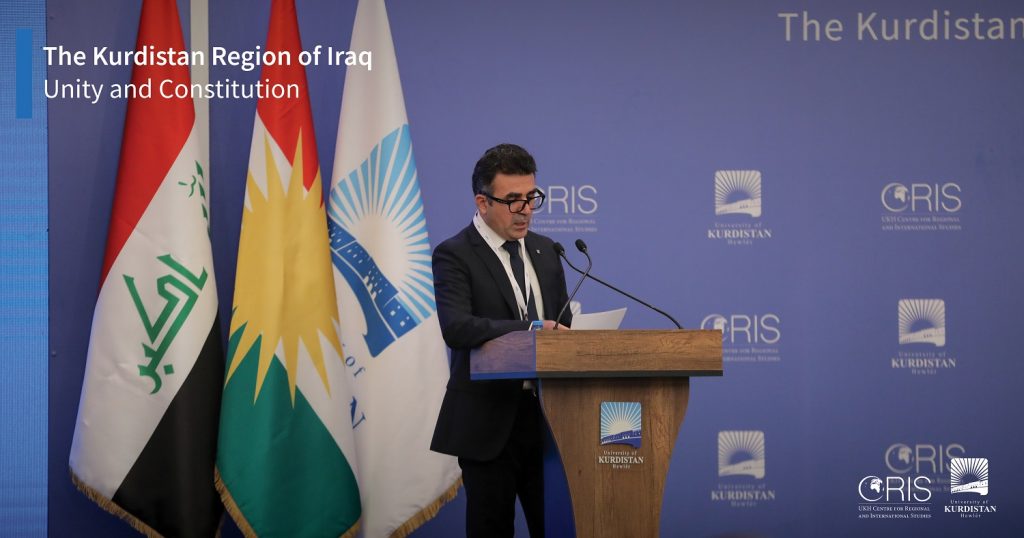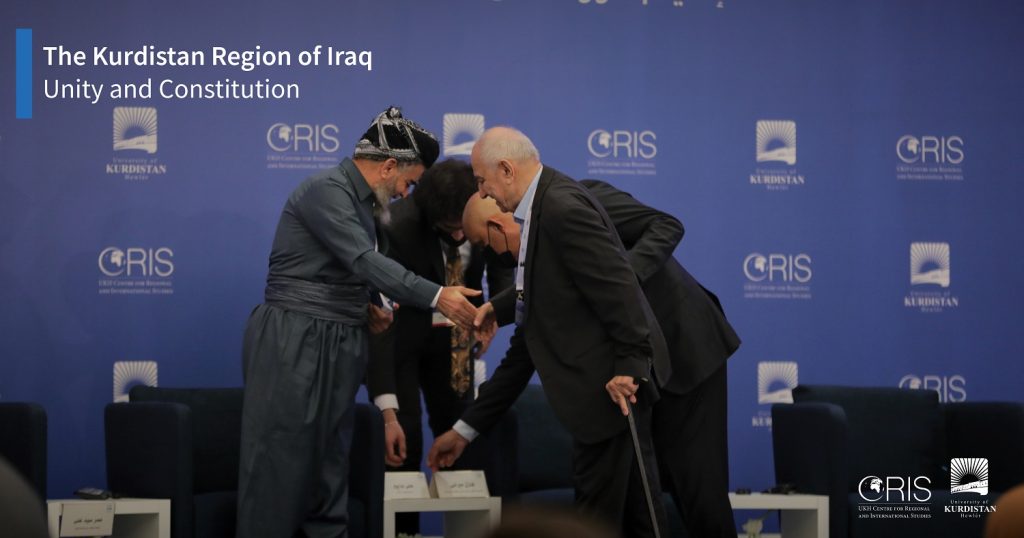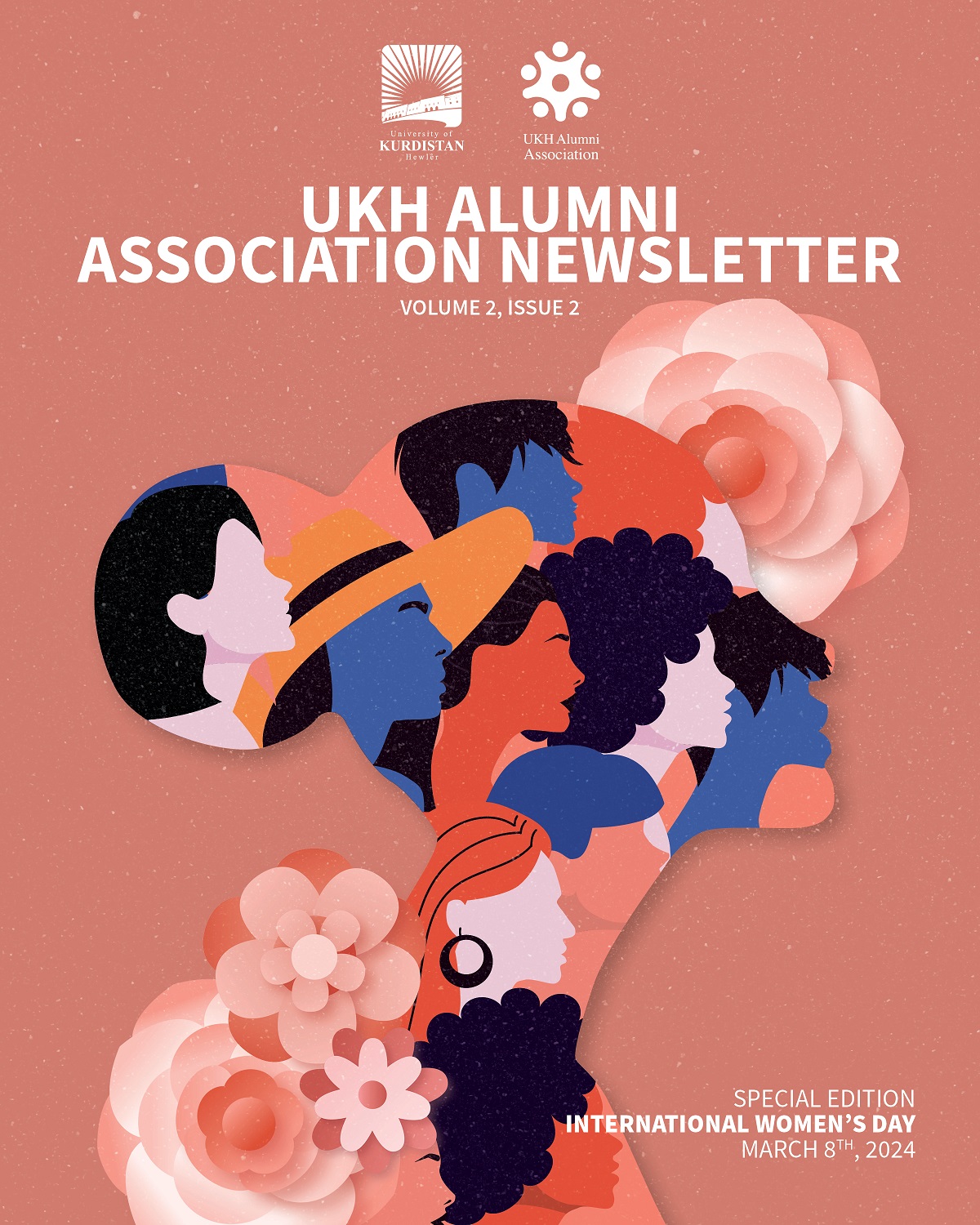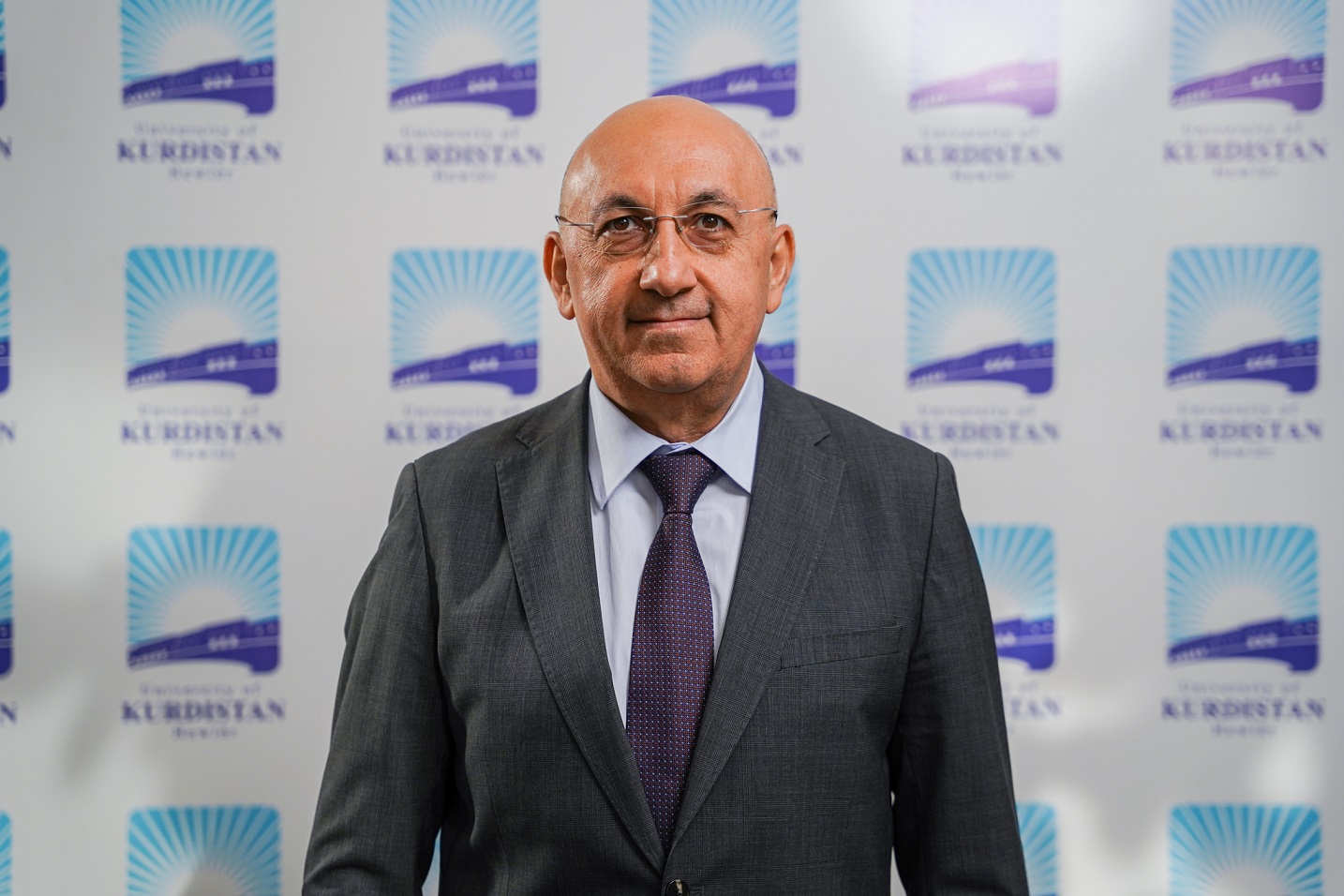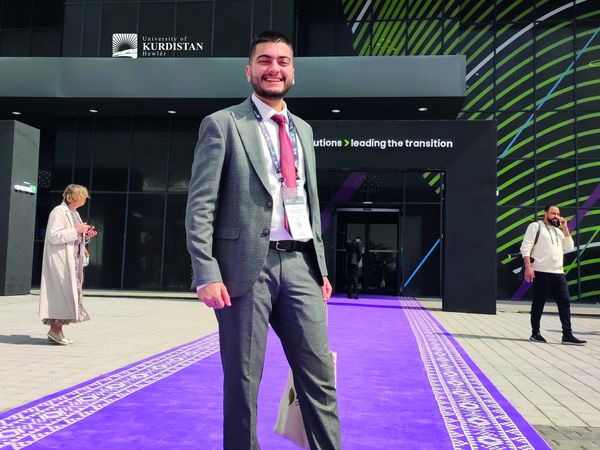The Kurdistan Region of Iraq: Unity and Constitution Conference Summary
Report
The Conference titled “The Kurdistan Region of Iraq: Unity and Constitution” organized by the University of Kurdistan Hewlêr’s Centre for Regional and International Studies (UKH CRIS) concluded its works successfully in Erbil, Iraqi Kurdistan Region on Wednesday 19 May 2021.
The high profile conference was attended by His Excellency President Nechirvan Barzani, His Excellency Prime Minister Masrour Barzani and Her Excellency Parliament Speaker Rewaz Fayeq, Her Excellency Jeanine Hennis-Plasschaert, Special Representative of the Secretary-General for the United Nations Assistance Mission for Iraq, Baffel Talabani, Co-President of the Kurdistan Patriotic Union (PUK), Omar Sayyed Ali, Secretary General of the Change Movement, Ali Bapir, President of the Kurdistan Justice Group, Fadhil Merany, Secretary of the Politburo of the Kurdistan Democratic Party (KDP), Khalil Ibrahim, Administrator of the Executive Council of the Kurdistan Islamic Union, His Beatitude Patriarch Cardinal Mar Louis Raphaël Sako, Patriarch of the Chaldean Catholic Church in Iraq and the World, in addition to other party leaders both from the opposition block and the ruling parties, well known academics, diplomats, representatives from all ethnic and religious communities in the Kurdistan Region as well as the media.
The KRI Unity and Constitution Conference being a forum to bring together different politicians, researchers, academics, media specialists, religious figures, diplomats and students aimed at discussing the diverse opinions and views on the challenges and opportunities of unity in the Kurdistan Region as well as tackling the different aspects of a prospected constitution for the region.
UKH believes that academic institutions in general, and universities in particular have the ability to initiate dialogue between different stake holders and policy makers and provide scientific and academic frameworks for recommended solutions to disputes. While UKH is an international university, it views studying national crisis and disputes and contributing to finding and recommending solutions as a social responsibility. The neutrality of academic institutions is a key factor in paving the ground gaining trust across the different parties and creation of more understanding between them, let alone stirring peaceful methods to resolve differences. UKH aims bridging these differences and integrating them within academic concepts.
UKH thanks all the panelists, speakers, attendees, guests and the organization committee for their time and dedication during these difficult times of Covid-19 pandemic. This conference was held with full abiding by health and safety measures adopted against the spread of Covid-19, such as wearing face masks, hand sanitization and social distancing.
The Kurdistan Region of Iraq: Unity and Constitution
UKH Acting President Dr. Heja Sindi opened the conference by welcoming the guests and thanking them for their presence. He also gave an overview on UKH’s perspective on unity and constitution. “Ladies and gentlemen, both. political logic and reality shows us that we cannot have a common vision and an understanding of the challenges facing us unless we come together but also hear each other” he said.
On the importance of having a constitution for the region, Dr. Sindi stated that political parties must put the common vision and understanding they have into a contract that gathers all parties together and protects everybody, “that contract is a constitution” he said. Dr. Sindi concluded his remarks by highlighting the significance of organizing this conference and providing an open academic platform for a better convergence between theory and practice of politics, law and economy. “We believe this will help us in stepping forward towards a modern constitution for our people” he concluded.
The Kurdistan Regional Government Prime Minister Masrour Barzani gave the keynote speech. “I am very happy for the chance to participate in this important conference of unity and constitution.” Prime Minister Barzani stressed out the importance of being united by reminding the milestone achievements of the uprising back in 1991. “However, before being united, we need to unify our ultimate goals. Unity should lead us all to a common state, equally the same for all of us. We can’t ask for unity while moving in two different directions. We cannot all be in the same boat without having different destinations in mind” he stated.
The rest of the day was followed by important speeches and panels. Jeanine Hennis-Plasschaert, Special Representative of the Secretary-General for the United Nations Assistance Mission for Iraq delivered a speech too. Plasschaert started with a Kurdish phrase, literally meaning “a good friend would make you cry”, following by expressing her concerns on the existing divisions in the Kurdistan Region. “The past is telling, so is the present that the future is full of uncertainties” she added, highlighting the fact that it took so long and a high price to reach today’s autonomy. Plasschaert addressed the leaders of the political parties of the region not to take today’s autonomy for granted, and that unity is essential for sustaining what has been achieved so far.
On federalism, Plasschaert referred to the bond between the components of a federal entity is decisive for keeping that entity strong, yet such bond can be maintained only through community reconciliation and cohesion. “The Kurdistan Region is a diverse place, it is the home to a vast array of peoples, languages, and religions. This embrace of diversity was recently and remarkably exemplified during the landmark visit of Pope Francis”. Plasschaert referred the notable resilience and strength of the Kurdistan Region being arising from its diversity and a strong Kurdistan Region could effectively help Iraq to be stronger.
Internal Unity for the Constitution
The one-day conference brought together different opinions for honest talks and open discussions. The first panel of the conference hosted each of Baffel Talabani, Co-President of the Patriotic Union of Kurdistan (PUK), Omar Sayyed Ali, Secretary General of the Change “Goran” Movement, Ali Bapir, President of Kurdistan Justice Group, Khalil Ibrahim, Administrator of the Executive Council of the Kurdistan Islamic Union as well as Fadhil Merany, Secretary of the Politburo of the Kurdistan Democratic Party (KDP). This panel was moderated by Dr. Bayar Mustafa, Dean of the School of Social Sciences at UKH. This significant panel was a stirring one, given the fact that the panel was high profile and that UKH could bring together leaders from parties who are either at odds with each other, or divided on numerous important and strategic matters.
Sayyed Ali started the conversation by blaming the KDP and the PUK for the sensitive de facto status of the region. “KDP and PUK are able to bring unity, and destroy it as well” he said. Sayyed Ali referred to the rest of the parties as “medium or small-sized” and not in a capacity to destroy the unity of the people. Sayyed Ali linked the success of any constitutional project to unity. In other words, a constitution cannot be functional without unity.
In answering the question of whether the Kurdistan Region should be unified before having a constitution or the other way around, Ali Bapir stated the constitution is an effective tool for unity, however, justice is above all other considerations. We need to have justice if we want to be united. “16 years after the popular vote on the Iraqi constitution which allows the Kurdistan Region to have a constitution of its own, the region is yet to have one. We are internally divided, and this division is sourcing from the lack of justice in our society” he added.
Baffel Talabani, on the other hand, assumed that unity is essential to guarantee agreement for a constitution. Ultimately, we need to change the political landscape in the Kurdistan Region, he suggested. Talabani also asked for reconciliation among the political parties first and then reconciling with the people. Talabani also warned that the stakes will be high shall the parties remain divided.
Khalil Ibrahim, representing the opposition party of the Islamic Union of Kurdistan suggested that a constitution could definitely protect unity in the region. Yet, there is too much work to be done to prepare “necessary elements” for unity.
Role of the Parliament
The conference also hosted a discussion session with the Speaker of the Parliament of Kurdistan – Iraq, Dr. Rewaz Fayeq, moderated by Dr. Omar Nuraddini from the Lebanese-French University in Erbil.
Fayeq holds a PhD in Civil Law and was a member of the parliament between 2013 and 2018. She stated that the parliament has initiated talks with different parties on the constitution, and all the parties welcomed the idea.
The Parliament Speaker revealed that they have agreed with the Kurdistan Region President, Mr. Nechirvan Barzani to lead process of unifying the political parties; which is the cornerstone for the success of the whole process.
Speaker Fayeq believes that the constitution lies at the core of the parliament’s duties and that all parties need to recognize the importance of drafting a constitution that protects civil rights, pillars of democracy, guarantees individual liberties and puts forward proper organization of relations between constitutional institutions.
The Constitution and Democratic Political System
It is needless to say that democracy is best functioning where a constitution is well respected by all parties. However, the differences between theory and practice are of great importance. UKH aimed at making the academics’ voice heard, especially by political leaders. The second panel of the conference hosted academics from different but related backgrounds.
Dr. Vala Fareed, KRG Minister of State and former parliament member and a university professor, opened the panel by quoting “Having a constitution doesn’t necessarily guarantee a decrease of political disputes and violence, yet establishes a base for a proper segregation of powers”.
On human rights and individual liberties, Fareed stated that they are determined to draft a constitution that adheres to international pacts and agreements relevant to protecting human rights.
Dr. Yousef Goran, previous minister at the KRG stated that a constitution that will protect minorities and human rights will take the region to another level. However, a constitution must be implemented to fulfill the public’s needs. “The Constitution of Iraq is a good one, yet it is not being properly implemented. Iraq is not a completely federal state until all provisions of the constitution are implemented” he said.
Constitutional Rights and Freedom Related to Ethnic and Religious Communities
This panel hosted representatives from various ethnic and religious communities of the Kurdistan Region. These communities, who are indigenous peoples of the region, usually share similar ambitions of protection and further engagement in the decision making stages. Muna Qahwachi, Secretary of the Parliament of Kurdistan-Iraq praised the KRG for protecting these groups. “The Kurdistan Region is a leading model for protection of minorities” she said.
Dr. Muna Yaqo, Law Professor and the newly appointed head of the Independent Commission of Human Rights called for legislation of laws that empowers components such as Yezidis, Christians and others. “These components are clearly mentioned in the Iraqi constitution, yet no bills are legislated to turn the words into action”.
Sara Khalaf, a Yezidi activist and Coordinator of the Wadi Organization gave an overview of the atrocities that the Yezidis faced. Khalaf related these incidents to ignoring the implementation of the provisions of the Iraqi constitution, especially article 140 to determine the status of the disputed territories. However, Khalaf applauded President Barzani for his efforts in rescuing the Yezidis who fled their areas as a result of the attacks of the Islamic State (ISIS). “I would like to call the President personally to step up and protect our rights in the constitution” she asked.
Speech of His Beatitude Patriarch Cardinal Mar Louis Raphaël Sako, Patriarch of the Chaldean Catholic Church in Iraq and the World
His Beatitude Patriarch Cardinal Mar Louis Raphaël Sako, Patriarch of the Chaldean Catholic Church in Iraq and the World was one of the conference speakers. In his speech, he thanked President Nechirvan Barzani for his assistance and efforts in the landmark visit of Pope Francis to the Kurdistan Region and Iraq. He called on the region and Baghdad to invest in Pope’s visit to the country for their good. He also thanked the KRG and the people of the Kurdistan Region for receiving and embracing thousands of Christians who fled violence from the rest of Iraq. Patriarch Cardinal Sako asked for a modern constitution based on universally approved principles recognized by international laws of human rights, such as the recognition of pluralism, gender equality, and legitimate human and legal diversities. His Beatitude also called for the separation of religion from politics. “The inclusion of religion in politics is a distortion of it and its lofty values, because religion is different from politics. Religion is a system of sacred beliefs, practices, and rituals” he said.
One on One Discussion with the President
The conference was concluded by a special discussion session with President Nechirvan Barzani, who started his remarks by thanking the speakers and the panelists for their opinion and thanked Jeanine Plasschaert for attending the full day conference. “her long stay with us indicates her support for the political process in the Kurdistan Region and in Iraq” he added.
The Constitution is a Means
President Nechirvan Barzani said that the constitution is only a means to reach specific goals. “We want the constitution to organize the political system in the Kurdistan Region, strengthen guarantee the safety of all components of the region and ensure a better future for the next generations” he said. The most important point of the constitution, he continued, is to protect citizenship rights of our people.
On diversity in the Kurdistan Region, the president depicted it as a “mosaic” that the beauty of the region and everybody should be proud of this reality. However, President Nechirvan Barzani also revealed that these communities are not yet assured, “as expressed by their representatives in the previous panel. But this constitution should provide guarantees for these communities” noted the president.
Further Dialogue on the Constitution
President Nechirvan Barzani referred to the remarks given by the officials that preceded his panel and signified the need for further and deeper dialogue on the constitution.
“It has now become clear that we need more discussions on this issue with the political parties and civil society, because the constitution, as His Excellency the Prime Minister mentioned this morning, and I want to emphasize what he said, is not specific to a single party, nor is it for a specific nationality, or a specific community, but rather the constitution is for all the people who live in the Kurdistan Region” said President Nechirvan Barzani.
Additionally, President Nechirvan Barzani called for an comprehensive cooperation between the Kurdistan Region Presidency, the government and the parliament to start practical steps to draft the constitution. He also said that the tour he made to the political parties is not over yet. “We will visit the other parties. We are very serious on this matter” he added.
Unity
The President of the Kurdistan Region implied that the political parties are currently sharply divided. On the contrary, important milestones were achieved when the parties were united. He referred to the war against ISIS and how the Peshmerga forces brought all the people of Kurdistan together and represented a unified identity.
The president recalled the 1991 uprising and how unity of the Kurdistani forces gained the region freedom and liberty, as well as the recognition of the rights of the Kurdistan Region being stated in the Iraqi constitution back in 2005.” We must know the fact that what has been affirmed for the Kurdistan Region in the Iraqi constitution is a very important historical document. Actually it is the only official reliable document after 1970” he said.
President Nechirvan Barzani voiced his dissatisfaction with the Iraqi constitution not being implemented. “We were in this situation in 2003, and nothing has changed after the fall of the previous regime. If we ask all the Kurds and say: Are you assured of your future in this country? I think everyone will say with one voice: No! Unfortunately, most of the constitutional articles related to the Kurdistan Region have not yet been implemented” the president noted. “if we stay divided, we cannot help ourselves and we cannot help Iraq either”.
“We believe in the federal system, and we believe in solving our problems within the framework of Iraq and according to the Iraqi constitution, we want to implement the constitutional articles related to the Kurdistan Region”. While the Iraqi constitution guarantees the regions to have their own constitution, our constitution should safeguard the protection of the principles and values of the Kurdistan Region, such as democracy, freedom of expression; principles that distinguish the Kurdistan Region from the rest of Iraq.
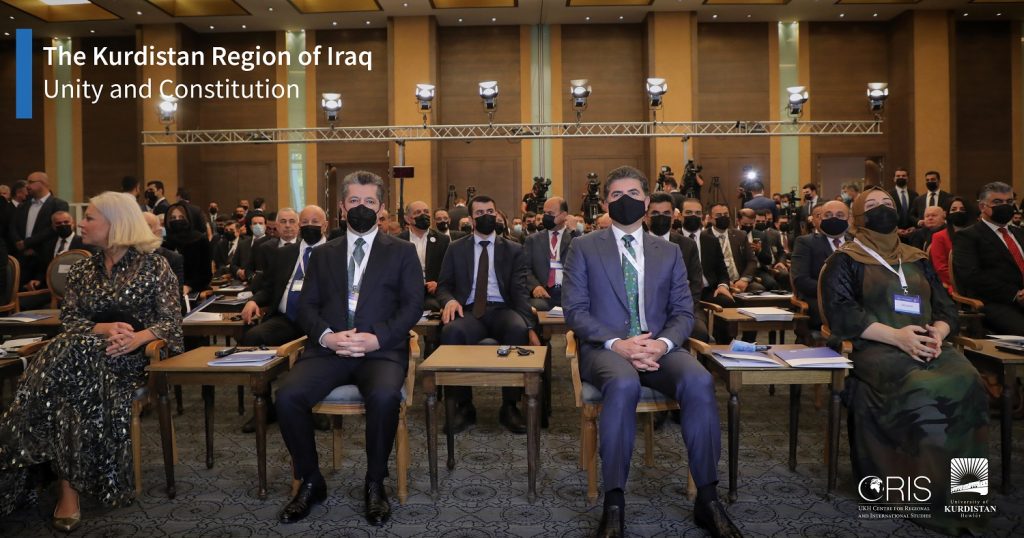
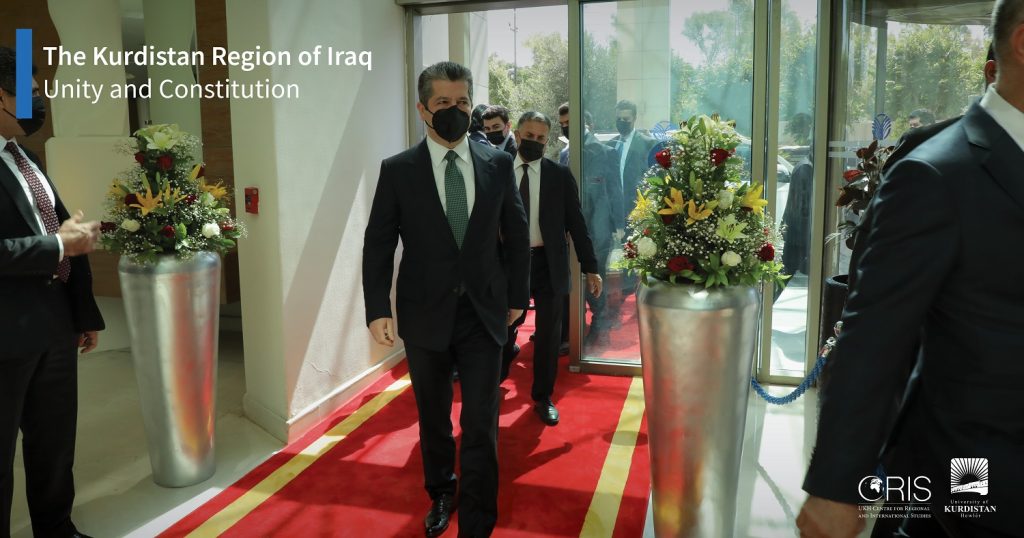
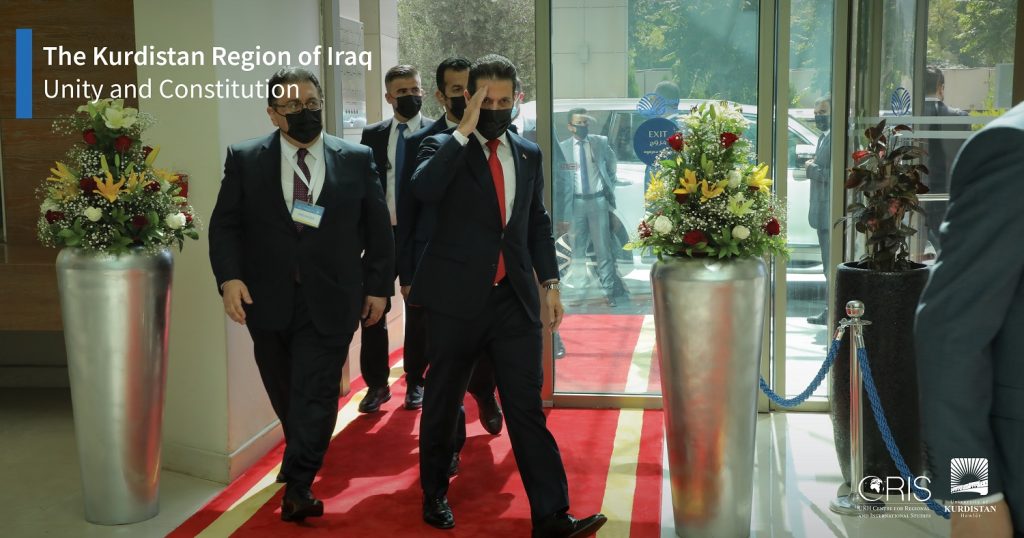
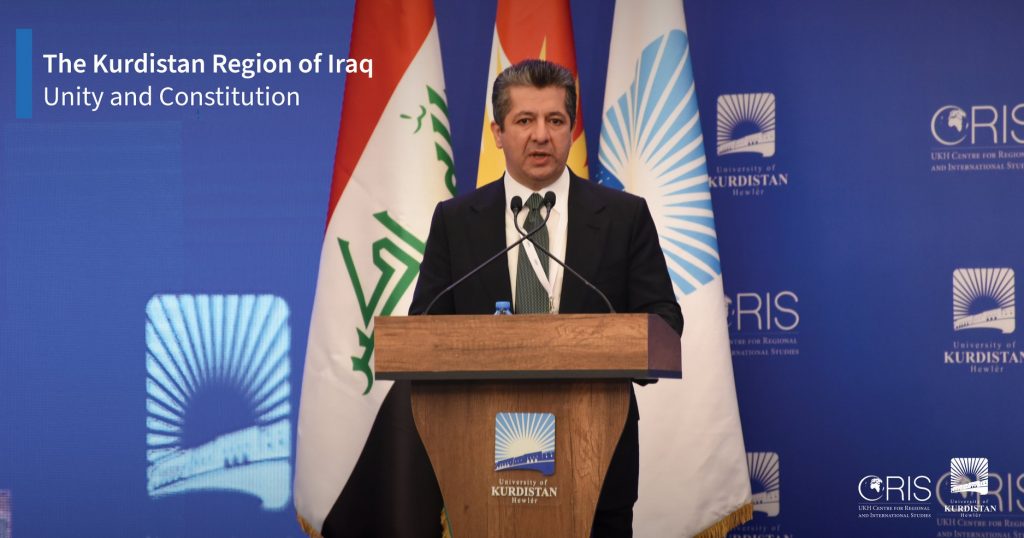
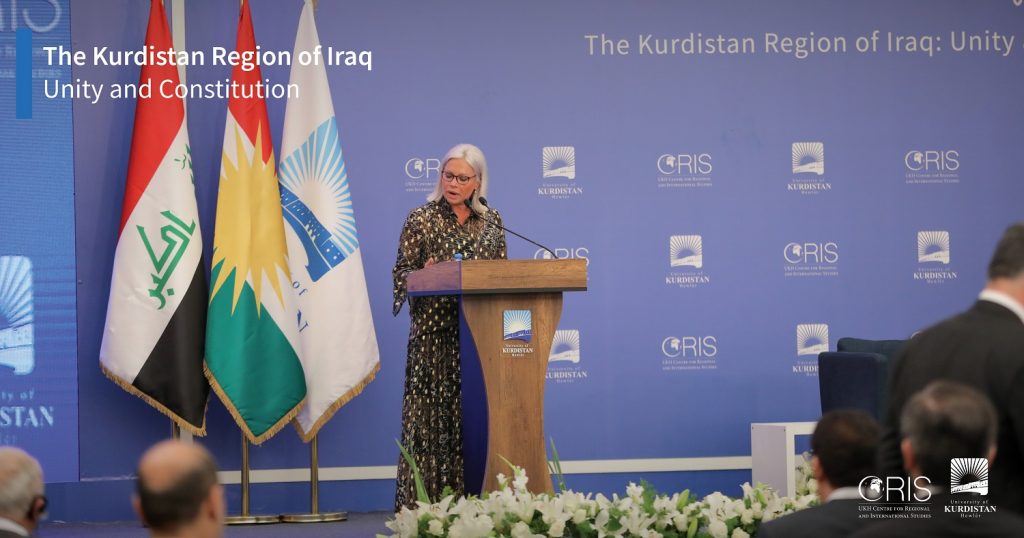
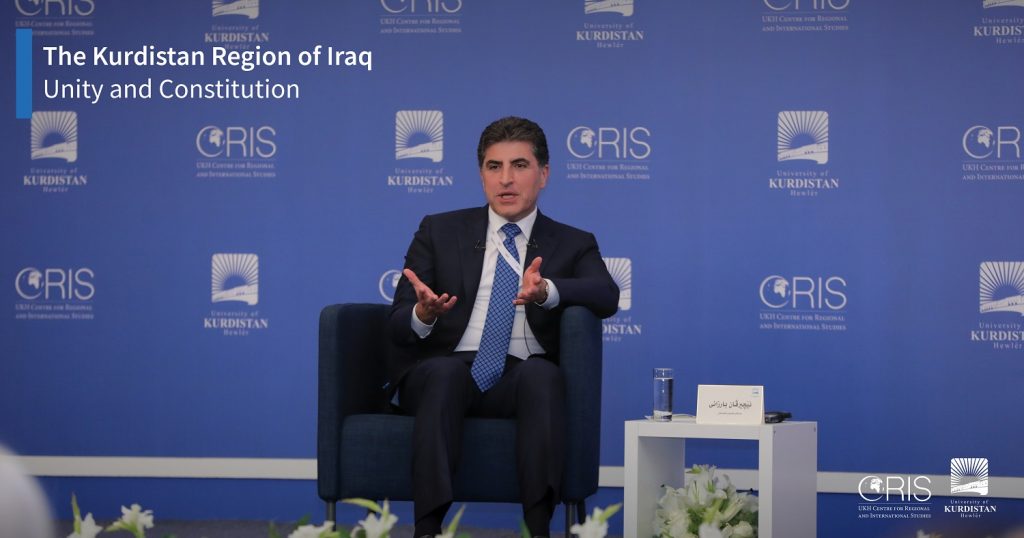
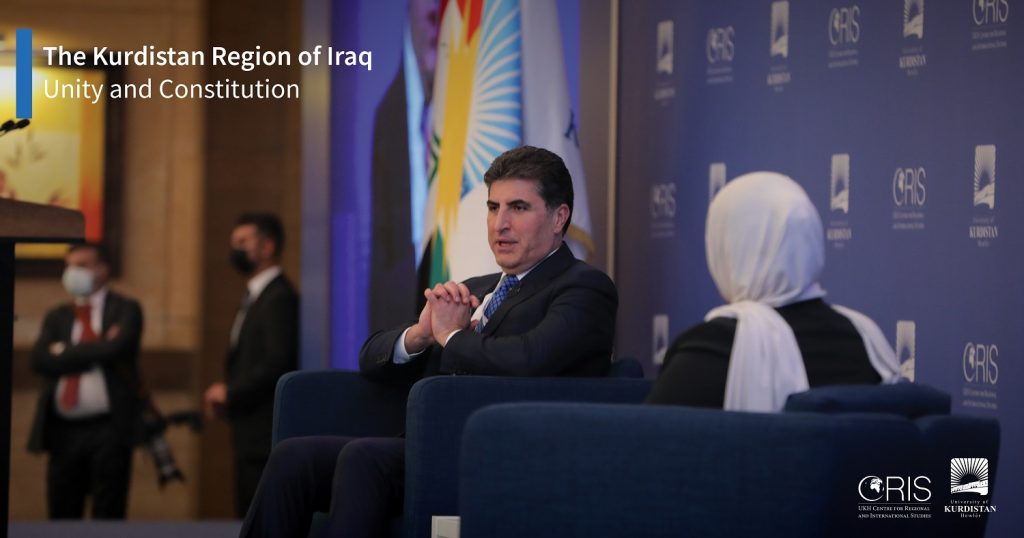
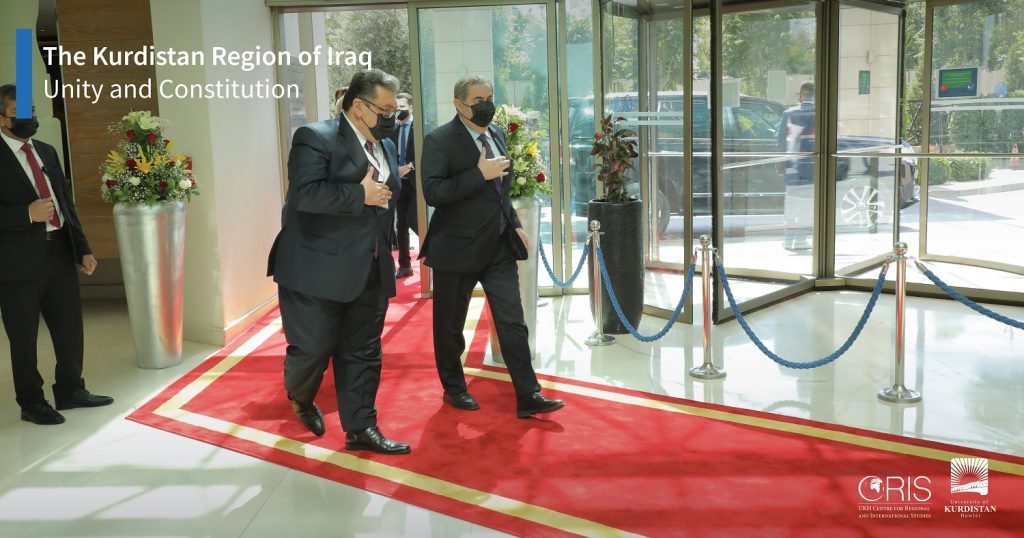
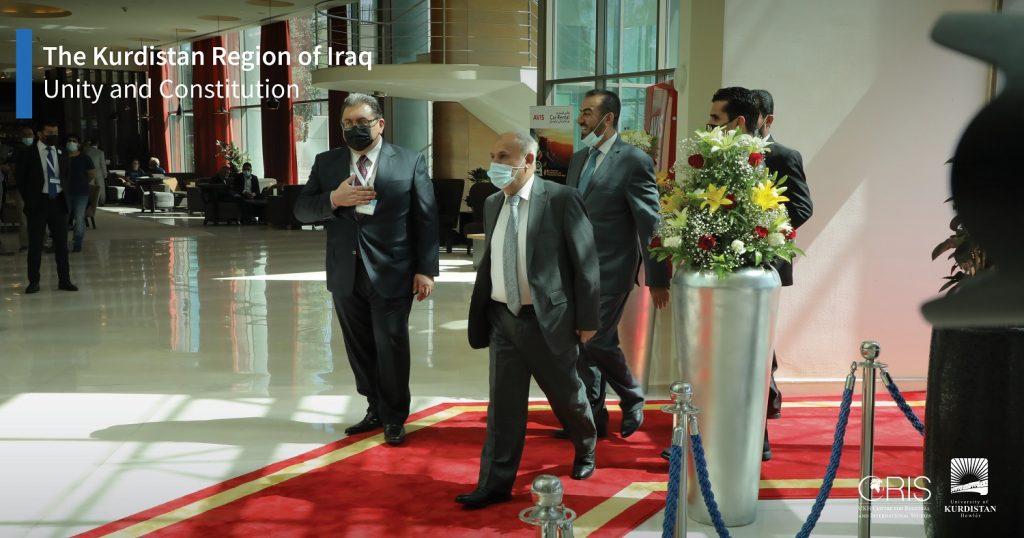
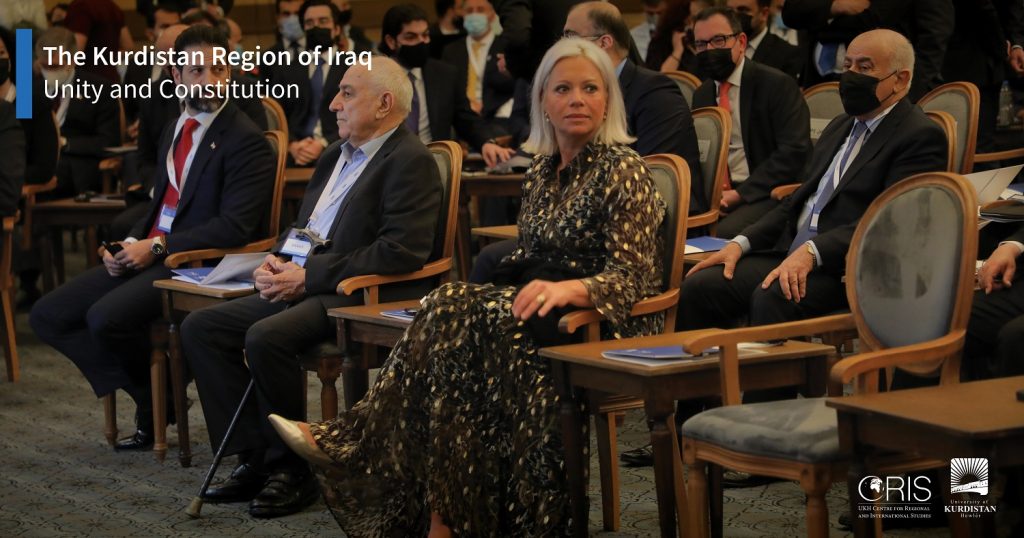
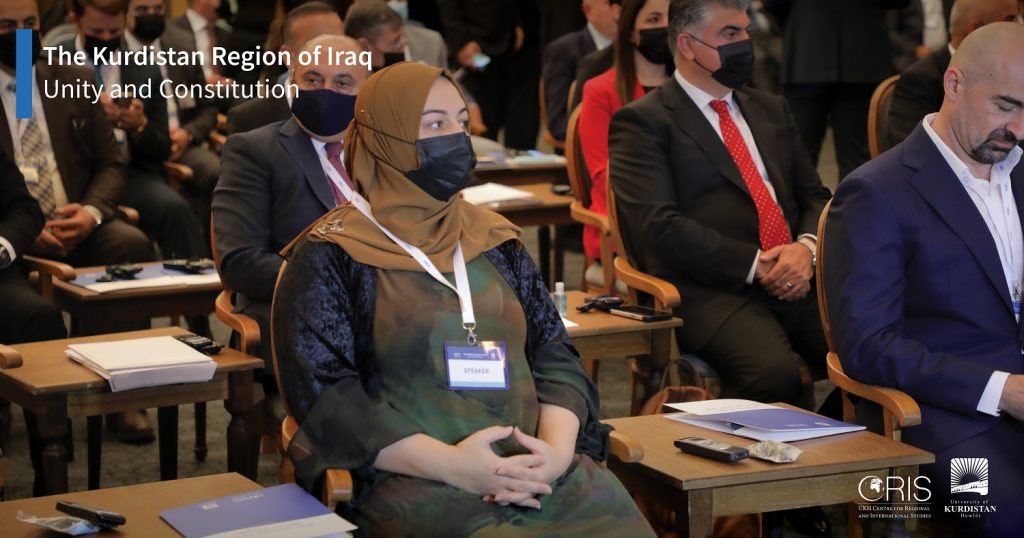
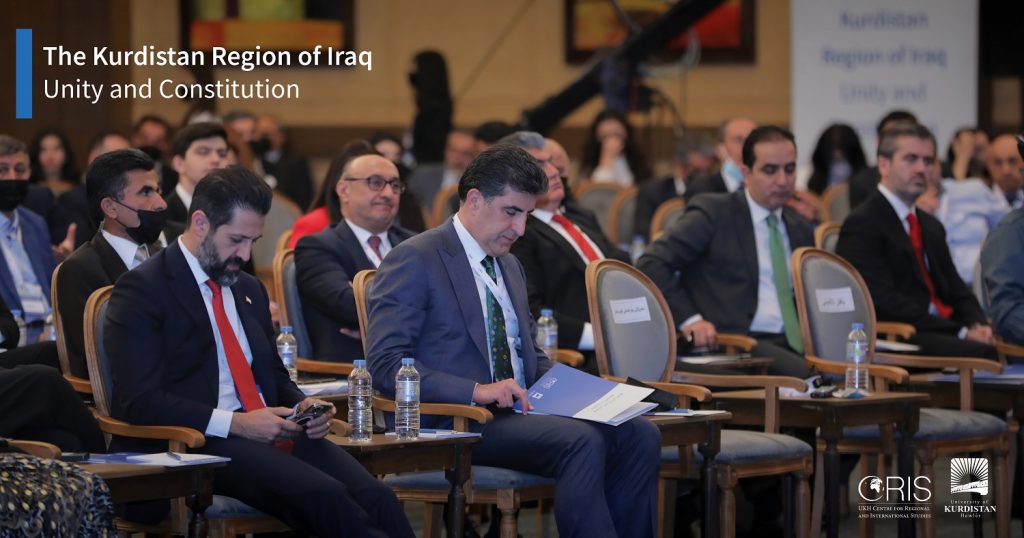
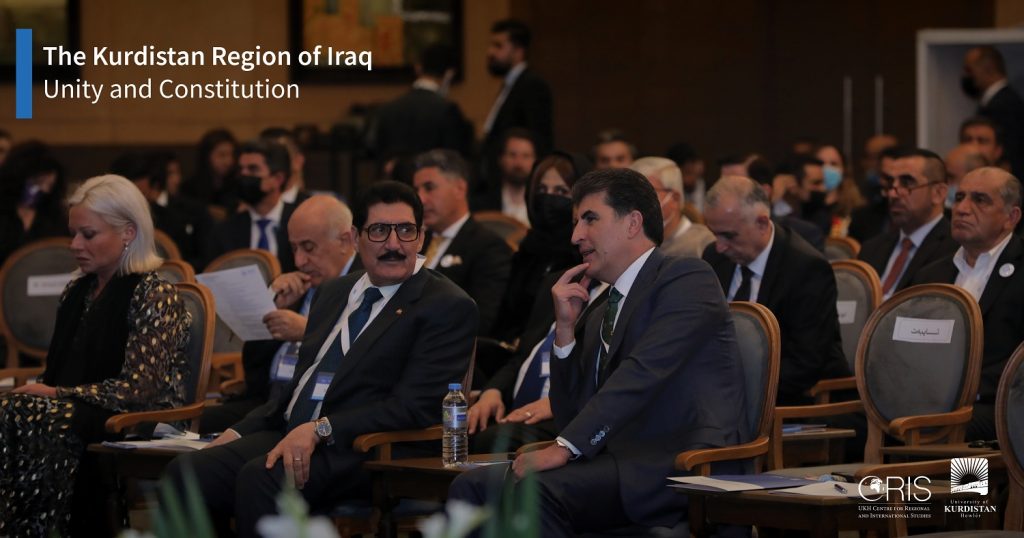
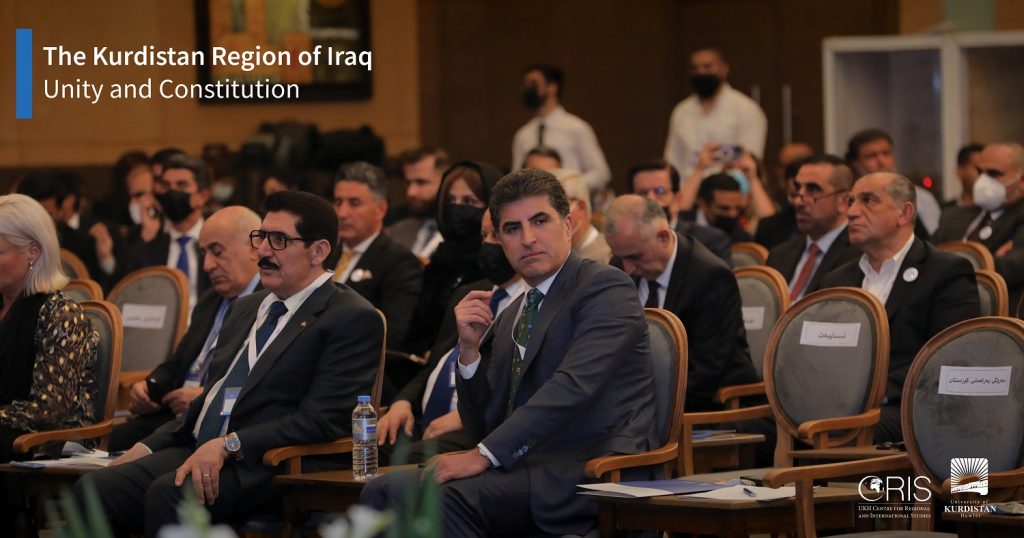
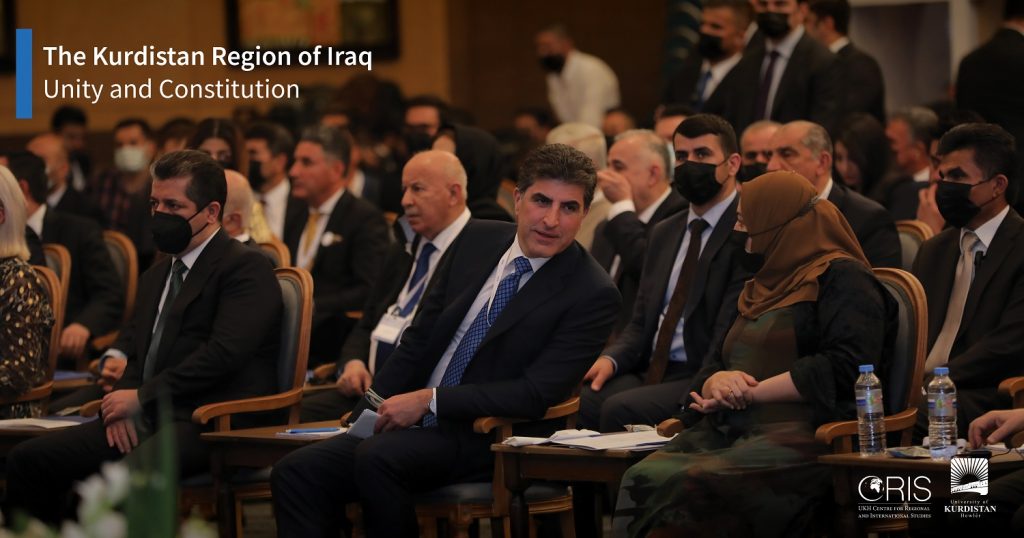
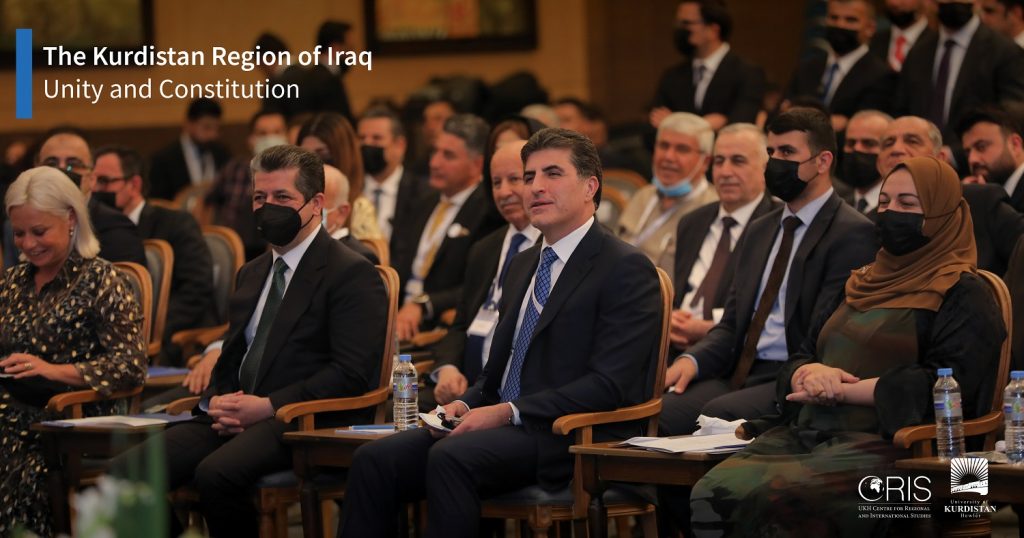
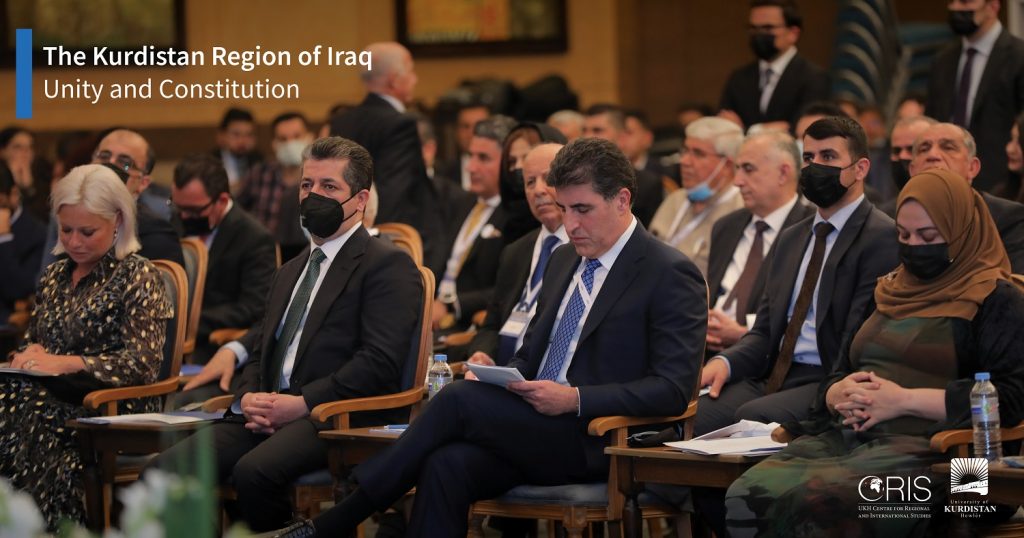
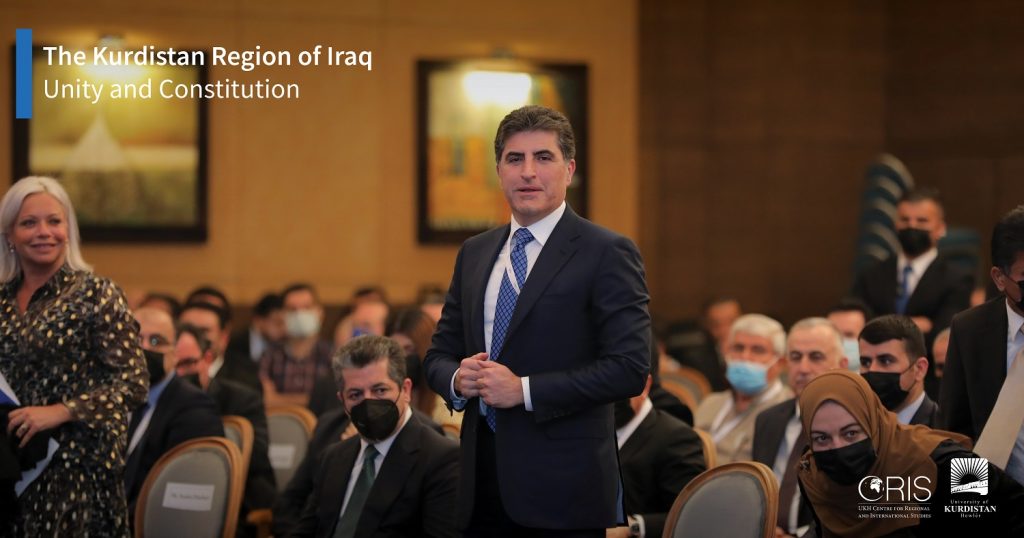
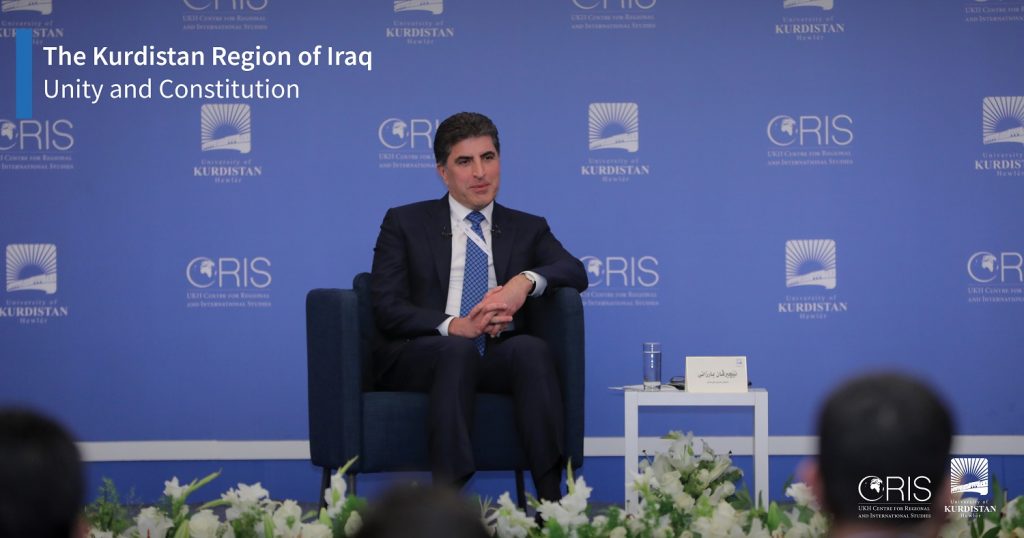
In conclusion, President Nechirvan Barzani stated: “My special thanks to the University of Kurdistan Hewlêr and its president for organizing this conference, and I believe that it was a good conference, which was enriched with the opinions presented during the dialogues. May God assist us all. Thank you very much.”
